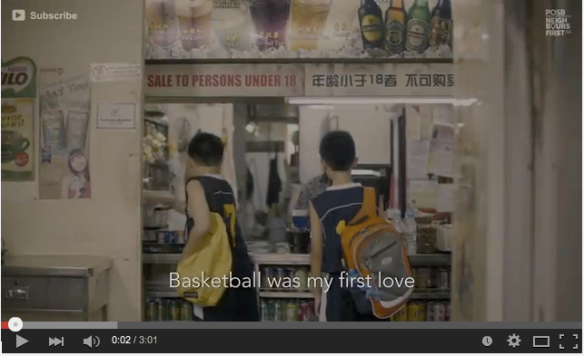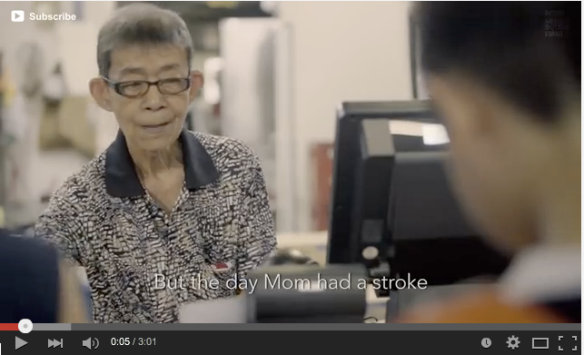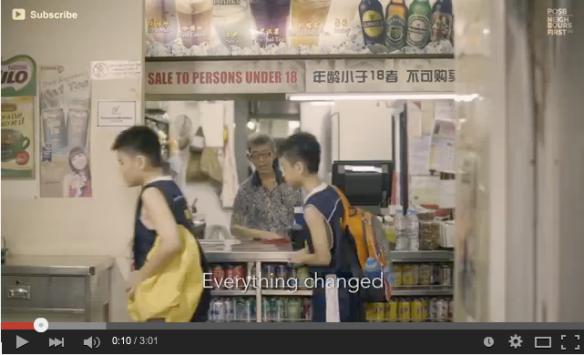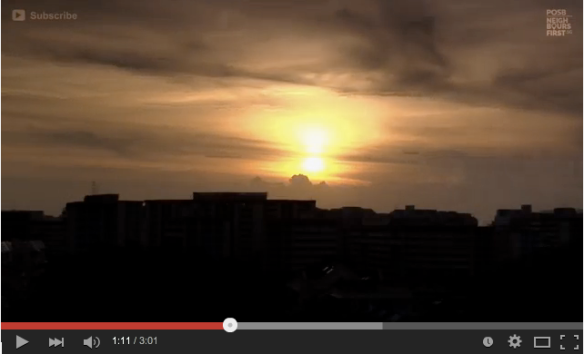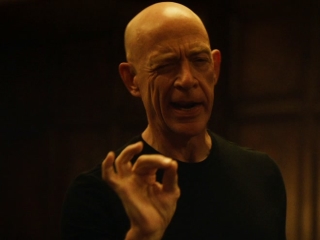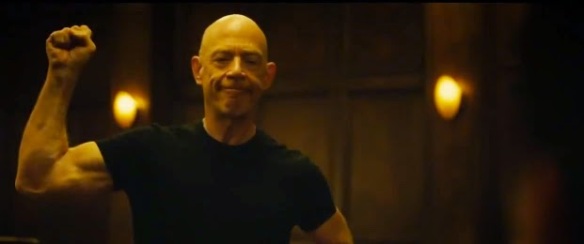Summer is slowly seeping into Sydney, chasing away the last vestiges of Spring with its humid rainstorms. The heat and humidity is a slight reminder of Singapore’s weather, and with it a slight feeling of home. Over the last couple of days the humidity has been building up, threatening a drenching shower but always retreating at the last moment. The storm clouds – Nature’s humidifier – sits above the Sydney skyline and bide its time.
Finally, the clouds release its contents and the temperature cools ever so slightly.
It had been like this for the past two weeks or so. A couple of sunny, humid days alternating with a day or two of rain, a little summer dance playing out across the city.
Yet the humidity has decided that it like it here and that is how I ended up half naked on Skype talking to my parents. Top naked.
Last Sunday, the weather was mild and perfect. The sun was out in full strength and although the humidity continued to hover around the city, there was a light breeze to ease the discomfort. Apart from my daily grocery trips and a coffee chat with a close friend on Thursday (something concerning my future), I had spent almost the entire week cooped up in a stuffy house. So I decided to head out to Glebe Point Road for brunch at Well Connected Cafe.
After a quick brunch of bacon and egg wraps, with ice mocha to wash it down (never a serious proponent of the java, a blasphemy considering that I come from a country of heavy coffee drinkers), I headed over to Sydney Uni to continue reading Geert Mak’s fascinating travelogue/historical/journalistic account of Europe, aptly titled In Europe: travels through the twentieth century.
I went to one of my favourite spots in university: a square patch of garden, with the BBQ pits, picnic tables and bicycle racks forming a neat line under the large foliage that formed a protective wall along the back perimeter. In the middle of the garden was a lone tree, dedicated to a person that I can never remember. In the distance, I could see Fisher Library and its towering Stack, quiet and imposing. The tiny stretch of Eastern Avenue visible to me was empty, not a single soul on its granite path.
The campus is still.
A person with normal hearing may be able to hear the quiet chirping and tweeting of the birds, the noisy buzz of the insects, or perhaps even the cacophony of the empire of dirt underneath their feet. But I am not a person of normal hearing, even with my hearing aids. The only sounds I heard is the low roar of traffic that sped along Paramatta Road. Yet that sound comforted me and soon it became a white noise buzzing in the background.
I continued reading Mak’s account of the Eastern Front during World War II where it saw the highest amount of casualties and devastation during the entire war. I read about how waves after waves of Soviet citizens pounded against the Wehrmacht, which was slowly decimated by fierce fighting and the harsh Russian winter. One word caught my attention: “Groupthink”.
Groupthink: “decisions made by small group of policymakers who see themselves as all-powerful, and who dismiss all problems by refusing to admit any undesirable information from outside” (Mak 437).
Groupthink, it had a rather Orwellian tinge to it. But it vividly described the policy decisions of Hitler and his inner cabal.
As I continued my reading, this time about Stalin’s rise to power, I heard garbled voices drifting into the garden. Looking up, I saw a group of tourists crowding on the road in front of the garden. Their necks craned, they stared at the sandstone buildings surrounding the garden, stoic and stately. The group consisted of men and women of East Asian origin, with ages ranging from late middle-age to the golden years. Despite the relatively warm weather, the majority of them were wearing windbreakers. Some of them were wearing caps and a few of them had cameras slung around their necks. As I was about to return to my reading, two men spotted me and broke away from their group.
They turned up at my table and smiled. So I smiled back. One of the men peered through his silver-rimmed glasses. With his black hair neatly parted to one side over his pale face, he had the benign air of a schoolteacher, or perhaps, an accountant. He reminded me of some of my teachers back in Singapore.
The other was a stark contrast. He was much older. His worn out cap sat on his thinning, silvered hair that framed his deeply tanned face, filled with deep valleys and crags, as if molded and sculpt into shape by years of harsh weather and hard work. When he smiled, there was a flash of silver fillings. He looked like the old men that I frequently see in Singapore coffee shops, often alone and brooding over a steaming cup of kopi-o, sometimes with boisterous friends over numerous bottles of Tiger Beer.
We continued smiling until the older man broke the silence.
But what he broke it with, I do not know. It sounded like Mandarin, or what my rudimentary knowledge of the language thought it sounded. It was his accent that gave a hint, voluminous, with an almost musical quality. The older man continued with his questions that I did not understand and could not answer.
I thought about playing the Japanese card, but then I remembered about the tense relations between China and Japan over a small, rocky island, so I quashed that option. The younger man joined in the questionings. Although his accent was lighter, I had no idea what he was trying to say.
I was in a quagmire, I knew enough Mandarin to get by, but not to converse. If I said “I cannot speak Mandarin”, in Mandarin, the men will know that I can speak Mandarin and will then attempt to carry out a conversation with me. I was caught in a paradoxical situation. How could I convey the message to the men that I could not understand their questions without betraying my infantile command of Mandarin?
The solution was right in front of me. Slowly, I dropped my gaze to my opened book. I paused for a few seconds before raising it to the men faces. The men stared at me, wondering why this young Chinese male was so impertinent to his elders. I repeated the procedure again, and this time they followed my gaze towards the book on the picnic table.
The younger man got the hint and very slowly, he asked, “Do you speak Mandarin?” Well, he got part of the hint.
It is a rather odd phenomenon that tourists who travel to other countries expect the native population to speak their language. To be fair, I am not an Australian, and I do the same thing in foreign countries sometimes: “Do. You. Understand. ENGLISH?”, and always in English. And here, on the ground of Sydney University, I was experiencing this odd phenomenon – this time on the receiving end – a man asking if I speak Mandarin, in Mandarin.
In the end, I admitted that yes, I speak Mandarin.
The two men were delighted. A floodgate opened and a torrent of questions rolled and rumbled towards me, mostly from the older man. I could only answer the older man with blank stares. The younger man somehow understood that although I speak Mandarin, I was not fluent in it.
By then, the rest of the group had gathered around the table, seeking sanctuary from the blazing sun, but mostly curious about the non-conversation taking place between the two men and I.
Standing opposite me, a woman with a hint of makeup on her lined face topped with buoyant curly hair, waved her right hand in a downward motion at the older man to stop his incessant questioning.
She tsked, “He doesn’t understand you”. Turning to me, she spoke slowly in a relatively flat accent, “Are you Malaysian?”
“No, I’m Singaporean.”
“Ah, Singaporean!” She turned to the rest of the group, “He’s Singaporean!”
“Singaporean?”
“Singaporean!”
The group was intrigued with me, a Singaporean male so far away from home, alone reading an English book on university grounds. The woman, now the de facto spokesperson of the group, asked if I am of Chinese heritage*. I replied in the affirmative. She walked around the table and stood beside me. Glancing at my book, she asked me another question.
“Huh?” I had no idea what she said.
She repeated her question slowly, “Are you a student?”
“Oh, er, yes. Yes.”
“So,” she gestured around her, “you study here?”
I no longer study at Sydney University, I am a graduand. But I do not know that Mandarin word for graduand. So I gave a simple answer, “Yes, I do.” The woman conveyed my answer to the group and they all nodded approvingly.
“Which year are you in? First year, second year, third year?” She raised her right fingers that corresponded to the number she said.
I pointed at her three upright fingers, “Third year.”
“What do you study?”
I did not know how to say the word literature, much less the word for politics. So I simply replied, “English. I study English.”
The woman nodded and mentioned something about university and English. I assumed that she was asking if I studied English at university level, so I just replied in the affirmative again. We had a pleasant conversation. I told her, in very halting Mandarin, about my brother studying in the U.S., and my sister studying the U.K. (something the whole group found amusing. One said, “You are all over the world!”). And I told her that yes, my parents can speak Mandarin. My problem with Mandarin was not so much the understanding, rather it was the difficulty in speaking it. The woman chuckled and said that I was not the only one, the American-born Chinese that she encountered during her holidays in the States had the same problem. Even then, she said, my command of Mandarin was fairly good.
I guessed six years of Singapore education system and eight years of tuition classes helped.
“So how are you university?”
“What?” It was back to the subject of university again.
“How are your grades? Are they good? Improving?” The woman raised her hands to demonstrate a plane, or a bird, taking off.
“Oh, er, yes, they’re good.”
She nodded in satisfaction. “You’re a hardworking student. You come out here and study, not like those people over there.” She gestured towards a group of young Australians barely a few steps away from us.
During the course of our halting conversation, a group of young Caucasian males, all dressed in shorts and pastel coloured t-shirts, had set up a small playing court and began playing a rather leisurely game of croquet. I glanced over at the Australians, wondering if any of them overheard what the woman said, and if any of them understood her.
She turned back to me and gave me a thumbs-up, “Good student.”
I smiled, “Yes.”
With our limited conversational subjects drying up, the woman went to talk to the other members of the group. The older man continue to engage me in conversation. As much as I tried to understand him, it was futile. Trying to understand him was the equivalent of trying to understand an elderly Scottish Highlander speaking English. If he had flattened his accent like what the woman did, perhaps I could understand him. Finally, the older man smiled his wrinkled, silvered smile and went to speak with the other group members.
My concentration was interrupted and instead of returning to my book, I watched the group of Australians at their leisured playing of croquet. There seemed to be no competition, just a gathering of friends hitting a plastic ball through hoops with a mallet. Around me, the Chinese tourists continued their chatter and soon their sounds drifted into the background like the traffic on Parmatta Road. It was one of those serene days, calm, quiet, with just a hint of seclusion that protected one from the hustle of city life. A while later, the Chinese tourists, energetic and refreshed, ambled off the garden and towards Eastern Avenue. The Australians continued their aimless putting. I am left alone, pondering.
My brief interaction with the Chinese tourists raised an old question: Am I Chinese? I know I am of Chinese heritage because my ancestors were from China. But does this makes me as Chinese as the Mainland Chinese because of my facial structure? If so, then does that means it makes that group of Caucasian Australians as English, or as Irish, or as Scottish as the people from the United Kingdom? What about the Americans who have direct ancestry from Ireland, Germany, or the Scandinavian countries? Over the years I have been told by strangers from China, and even by Chinese friends, that I am Chinese, I am part of them. They see me as part of the large Chinese diaspora around the world that ultimately belongs with the Mainland Chinese.
This ‘Chineseness’ also extends to language. During our conversation, the woman mentioned to me that because I am Chinese, I must speak Mandarin, and since I speak Mandarin, I must be Chinese. A circular argument that I constantly hear when speaking to Chinese people. I am Chinese, therefore I must speak the language. I have been chided for not being Chinese enough due to my unremarkable command of Mandarin.
The link to ethnicity and language is pervasive, especially in Singapore. When I was in Singapore, we learned two languages: English for everyone and our respective mother tongue. The term mother tongue is a bit of misnomer for me. Strictly defined, mother tongue means native language. In that case, English would be my mother tongue. But in Singapore, mother tongue refers to the language of an ethnic group. So during my time in the Singapore education system, I learned two language: English and Mandarin.
You are Chinese, so you must speak Mandarin.
Even so, within the Chinese language there are so many internal divisions or ‘dialects’ to the point that most of mutually unintelligible to one another and can be considered languages in their own right. I can speak what is known as Standardized Chinese, but I cannot speak my parents’ dialects at all. So does that makes me less Chinese?
On the flip side, I am, what most of my friends say, ‘Westernized’. Some of the observations stem from the fact that I am more attuned to cultural imports from countries such as the U.K.and the U.S. But in today’s age of globalization, who isn’t? However the majority is due to the fact of my strong command of the English language. I think, speak and dream in English. My entire worldview is processed through the English language. And as such, I am ‘Westernized’.
I do not deny my ethnicity. Yet I do not consider myself fully Chinese no matter what how the Mainland Chinese try to convince me. As a matter of fact, I have an Indonesian friend who is more ‘Chinese’ than I am. He has a much better command of Mandarin and .he frequently follows Chinese pop culture and is a fan of the pop group S.H.E. He is not of Chinese ethnicity but he is in a sense much more ‘Chinese’ than I am.
A cheer broke out among the group of Australians. Apparently someone scored or whatever it was in croquet. The majority of them were sitting on the grass, more content to watch than to play. During my reverie, the sky had became overcast. The sun disappeared behind a flotilla of rainclouds that threatened to unleashed its torrent on the city at any moment. I packed up and headed towards the Victoria Park, leaving behind the Australians chatting among themselves in the quiet garden. It was time to go home.
One can wonder, after all, whether there is any sense at all to the discussion concerning ‘European identity’, whether it is not in fact diametrically opposed to the entire history of the ‘European concept’. For if anything serves as the true hallmark of European civilisation it is diversity, and not a single identity. (Mak 486)
Perhaps the same can be said of a ‘Chinese identity’.
* The term ‘Chinese’ here refers to the Han ethnicity.






